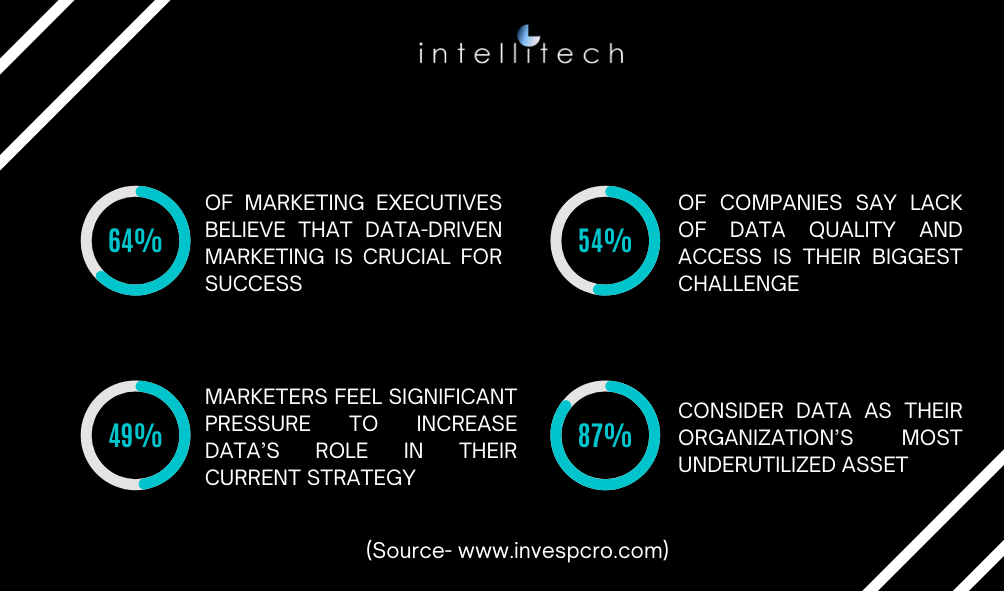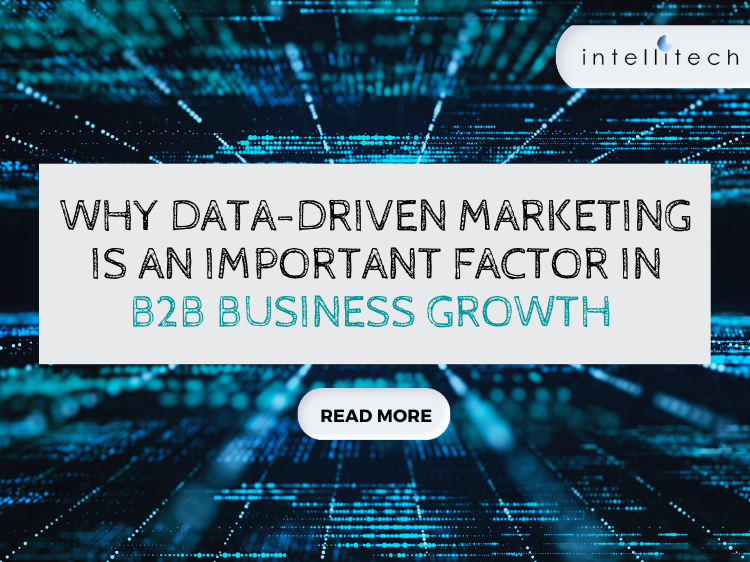Over the last decade or so data has been instrumental for b2b sales and marketing. Data- driven marketing has been an upward trend and today data has changed the way marketers do business.
There’s no doubt that data plays a huge role in effective lead generation or demand generation, right from the strategy level to execution.
So how does one leverage data for b2b sales and marketing? This blog discusses the facts and figures around the importance of data and how to leverage it for best business outcomes.
Why Data?
Data can be an enabler when it comes to contacting the right prospects from the designated target audience.
Data-driven marketing can enhance your customer interaction and thus the engagement.
Research shows the following statistics about data driven marketing-
- Businesses that adopt data-driven personalization delivered 5 to 8 times the ROI on marketing spend
- Marketers that exceeded their revenue goals were using personalization techniques 83% of the times
Below are some more statistics that show the importance of data driven marketing-

So what are some of the biggest challenges of data driven marketing?
- Irrelevant or insufficient technology
- Lack of team experience in data handling
- Lack of first-party and third party data
- Lack of data tools
- Poor data culture in organization
- Unclear data ownership and policies
- Lack of resources or competent resources
- Failure in testing and measuring data driven success
There could be many more factors but the above are most significant and can affect your overall data functioning and marketing results too.
So how can one leverage data for enhanced results both in sales and marketing for b2b?
- Gather data from only reliable sources
- Make relevant data a priority
- Get the best credible data for maximum results
- Acquire credible data to set you apart from your competitors
- Focus on data for persona-based marketing
- Invest in data that helps personalized communication
- Gather data that enables highly personalised content targeted at every buying stage
- Focus on data driven approach that helps to eliminate communication gaps with prospects
- Adopt a data-driven approach that can help communicate more effectively with various different decision makers within an organization
- Focus more on data collection, analysis and inventory of data
- Develop a more data focused company culture, where each function is aware of the importance of data
- Look for patterns within the firmographic and demographic data and be able to distinguish between different types of data
- Streamline sales and marketing processes for paving way to success
Data-driven marketing starts with every function and leaders need to communicate this with teams across organisations. Once the need is established, and the importance of data is communicated to all, it’s easier to work around data as a valuable asset with more sense of ownership from teams along with cultivating a result-oriented approach towards data.
Conclusion-
Data driven marketing is all about making data actionable and implementable to be able to drive sales and the ROI. Data-driven marketing is the future and now marketers and industry experts with the help of technology can create innovative methods for making data collection and implementation easier and less challenging.

